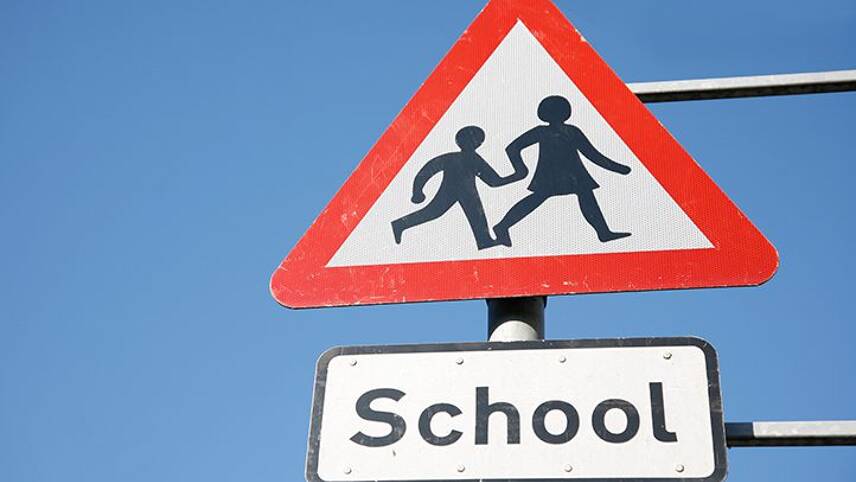Register for free and continue reading
Join our growing army of changemakers and get unlimited access to our premium content

The new measures will build on an existing pledge from the Government for every new school to be net-zero in operation
The Government has today (21 April) unveiled a plethora of new skills and education commitments under its Sustainability and Climate Change Strategy.
The Government has committed to introducing a new GCSE in natural history for UK schools, which will come into effect by September 2025. The aim of the strategy is to equip children with new ways of learning about the environment, the climate crisis and sustainability, but also by developing new skillsets that help them carve out a career in relevant environmental sectors, ranging from observation and analysis through to field studies.
As part of the commitment, the Government has pledged to revamp teaching requirements to focus on sustainability by 2023. To support this, the Government is rolling out a carbon literacy training programme to support at least one sustainability lead in every locally maintained nursery, school, college and university.
Education Secretary Nadhim Zahawi said: “We are delivering a better, safer, greener world for future generations and education is one of our key weapons in the fight against climate change. The entrepreneurial, can-do spirit of this country makes me confident that we will win this fight.
“It shouldn’t come as a surprise to anyone that young people are already very committed to a more sustainable planet. We should be proud of this, and I want to do everything I can to encourage this passion so they can be agents of change in protecting our planet. The new natural history GCSE will offer young people a chance to develop a deeper knowledge and understanding of this amazing planet, its environment and how we can come together to conserve it.”
The new measures will build on an existing pledge from the Government for every new school to be net-zero in operation.
It also reaffirms a measure unveiled at COP26, which confirmed the development of the National Education Nature Park that will help children and young people to get more involved in the natural world.
Industry Reaction
There is a long-held view that the Government was failing to adequately promote sustainability to younger people. A survey of more than 1,800 UK-based academics and chemistry sector professionals found that most do not think the climate and environment-related content currently on curriculums is good enough to support students into further study or related careers.
Conducted by the Royal Society of Chemistry (RSC) last year, the survey polled 619 educational providers and 1,198 people working in chemistry-related careers, to garner their views on the current state of green skills and the teaching of climate-related skills.
The RSC’s overarching conclusion is that both of these communities believe that the current curriculum content on climate change and sustainability is falling far short of delivering the knowledge and skills needed by the workforce of the future.
There was a near-universal acknowledgement of the importance of lessons directly relating to the climate crisis and other aspects of environmental sustainability, for all age groups. Almost eight in ten (77%) of respondents from academia and industry said it is “very important” to directly link to sustainability in chemical sciences courses. The proportion was even higher for primary and secondary school educators.
Environmental Audit Committee Chairman, Rt Hon Philip Dunne MP, said: “I am delighted that the Government has accepted our Committee’s recommendation to introduce a Natural History GCSE. Nature is in a fragile state in our country and nurturing our next generation of ecologists is critical if we are to turn the tide on the risk of extinctions across our natural world. Fewer and fewer young people are spending time outside appreciating and learning about nature: a formal qualification can help build knowledge and instil a love and respect for the great outdoors. It can help inspire solutions, securing the health of important ecosystems and building our critically important green workforce.
“We were very clear in our reports on biodiversity and ecosystems that we are facing a ticking timebomb of mass biodiversity loss, with the UK the most nature-depleted of G7 countries. This is exactly the right sort of intervention needed to make lasting change and to launch young people who might choose the growing career prospects in ecology and nature.”
Let’s Go Zero’s – a schools’ climate campaign which has more than 1,200 UK schools, colleges and nurseries signed up so far, all sharing the goal to be zero carbon by 2030 – campaign lead Harriet Lamb added: “We welcome many aspects of this strategy, including our suggestions that every school have a Climate Action Plan, a Sustainability Lead, and include sustainability and climate change in teacher training. But providing schools with the means to decarbonise quickly was glaringly absent in the strategy.
“We must invest now in a national programme to retrofit the nation’s schools. Providing adequate funding for action now will save hard-pressed school budgets as fuel prices are sky rocketing, boost local businesses, create new jobs, and support the government’s net zero and levelling-up targets.”


Much play is made of “net zero”.
To still generate CO2, but then to “off-set” by some means other than its removal is nothing less than slight of hand.
The only truly carbon free generators are wind, water, solar and nuclear.
And the only one truly under our control is nuclear, writhe and twist as one will, this will remain the case.
Sorry!! (Well, not really!)
Richard Phillips